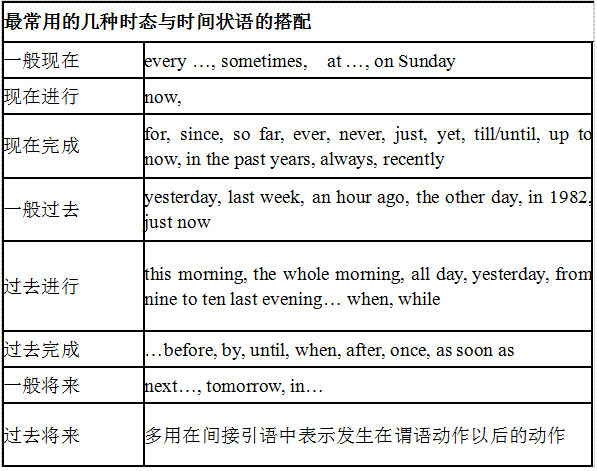
第四十一讲
Section Ⅲ Trying Your Hand
Applied Writing:
There are three aspects in making timetables and schedules.
1: The exact time (time, date, month, year)
2: The exact place 3: The activities of the plan
Example
May.2004
Monday 9:20 a.m. arrive in shanghai
Tuesday 10 .am visit a factory
Wednesday 2:00.p.m attend an important meeting in great wall.
Thursday 8.a.m visit the No.1 call-made company with Zhang
Translate the following schedule into English.
6月18日 9:00a..m 约见鲍勃星期一 2:30p.m去机场接安德森先生,入往北京饭店
6月19日 8:30AM 带安德森先生到工厂参观。 星期二 7:30p.m 与王总经和安德森先生 共进晚宴,北京 饭店
6月20 8:00a.m 写总结报告星期三 2:00p.m公司职员大会
6月21日 9:30a.m去艺术馆看展览星期四 3:30am参加商务会议
6月22日 8:00am送安德森先生去机场,起飞时间:10:10am星期五 办理登机手续: 9:10am
Grammar and Practice
Sentence writing: Verb tenses English Basic Tenses (时态)
The Verb Tenses give information about when an action takes place. Remember to change verb tenses only when there is a real change in time .
Main types of verb tenses
Past Tense: The action occurred in the past.
Present Tense: The action occurs in the immediate present.
Present Progressive Tense: The action is ongoing at present.
Past Progressive: The action was ongoing in the past.
Perfect Tense: The action extends from the past to the present.
Past Perfect Tense: The action occurred at a time prior to another past time.
Future Present Tense: The action will occur at a future time.
Future Perfect Tense: The action will have already occurred at a point in the future.

Grammar: Verb Tenses
动词的时态(一)
英语动词的时态表示两个概念范畴:
1、 时间:即动词的行为或状态是发生在现在、过去或将来,故英语动词有现在时态、过去时态和将来时态。
2、 方式:即动词的行为或状态经常发生、正在发生或者已经发生,故有一般式、进行式或完成式。一般式表示行为或状态经常发生或出现,进行式表示行为或状态正在发生或出现,而完成式则表示行为或状态已经完成或结束。
3、 将二者综合起来,就构成了英语多达十几种时态。写作中要特别注意正确使用:
(1) 一般现在式:现在一般式、过去一般式和将来一般式。一般式表示现在、过去或将来发生或存在的经常性或习惯性的行为或状态,现在一般式还常用来表示特征、状态或普遍真理。一般式常用和always, often, usually, every day, sometimes, twice a week, occasionally 等表示频率的状语连用。
1)、I always watch TV after supper.我总是晚饭后看电视。
2)、She is very kind.她很善良。
3)、Sound travels slower than light.声音比光传播的速度慢.
练习题:He always ____ (go) out for a walk in the evening.
(2) 一般过去时态的句中常出现表示过去时间概念的时间状语。如:yesterday, three days ago, in 1668, once, then等。
4)、Tom went to Beijing yesterday.汤姆昨天去的北京。
5) When I was little, I used to swim in this river.小时侯,我经常在这条河里游泳。
练习题:Last year, I _____ (buy) a new car.
(3) 一般将来时态的句子中常出现表示过去时间概念的时间状语有:tomorrow, the day after tomorrow, in 2010, in four days 等。
(4) 进行式:现在进行式、过去进行式和将来进行式。进行式表示现在、过去或将来某一时刻正在发生或进行的行为或状态。
6 ) The children are playing basketball.孩子们在打篮球。
7 ) The bird is singing on the top of the big tree. 鸟儿正在枝头唱歌。
8) It is raining.天正在下雨。
I _____ (play) table tennis when you called.
(5) 完成式:现在完成式、过去完成式和将来完成式。完成式表示行为或状态到现在、过去或将来的某一时刻已经完成,且其结果或影响保持到该时刻。
9)、I have been to shanghai.我去过上海。
10) China has gotten great improvements in all fields of the society since 1949.
1949年以来中国自方面都取得了巨大进步。
By the end of October they ____(hit) the year’s target.
(6)现在完成进行时:是完成式和进行式的结合,表示行为或状态到现在已经开始且仍在进行。
11) Tom has been doing his homework for three hours, but he still does it finish it.汤姆已经作了3个小时的作业了,但仍没完成。
12)、I has been waiting for Mary, while she doesn’t turn up.
我一直在等玛丽,但她还没来。
He _____ (speak) English since he had been a boy of twelve.
(7)过去将来时:表示从过去某一时刻看将要发生的动作或状态,多用与间接引语和从告当中。
13)、I understood that I would study hard.我知道自己要努力学习了。
I knew I ______ (find) you in the library.